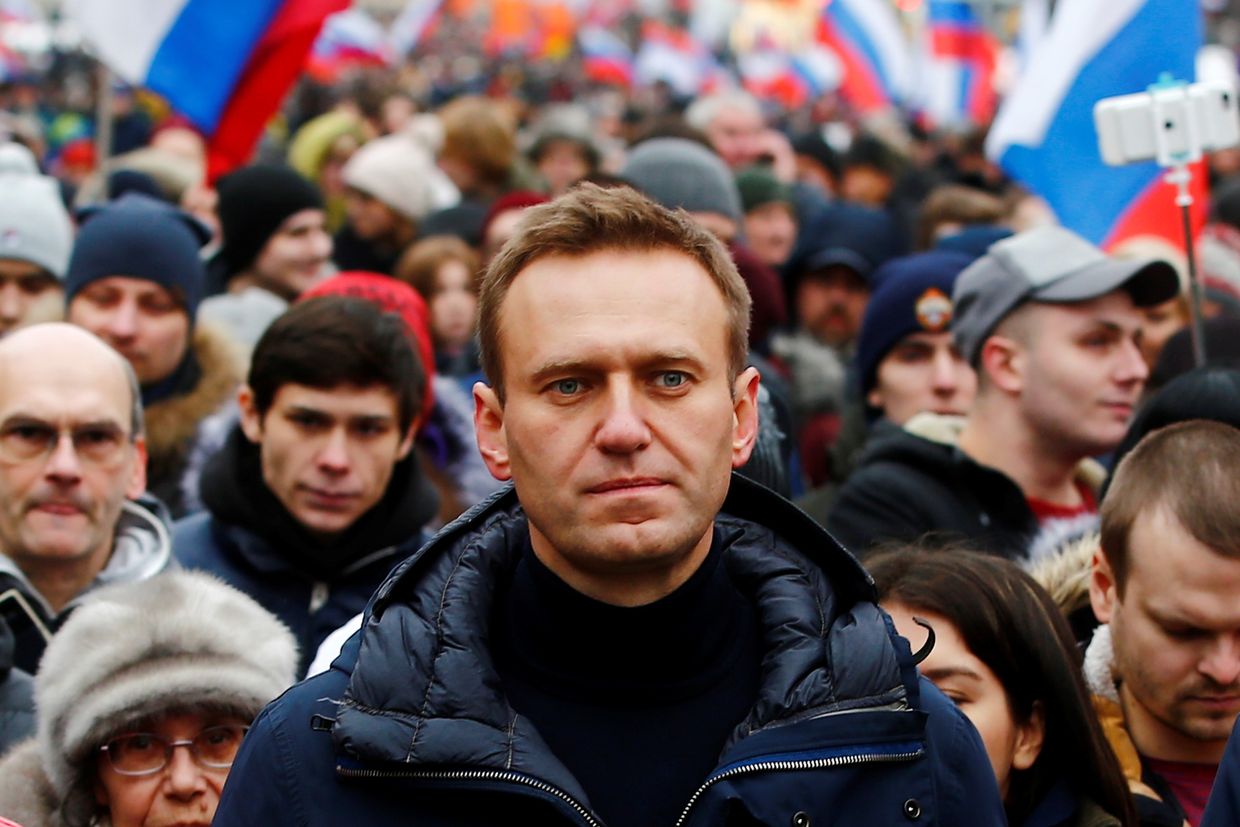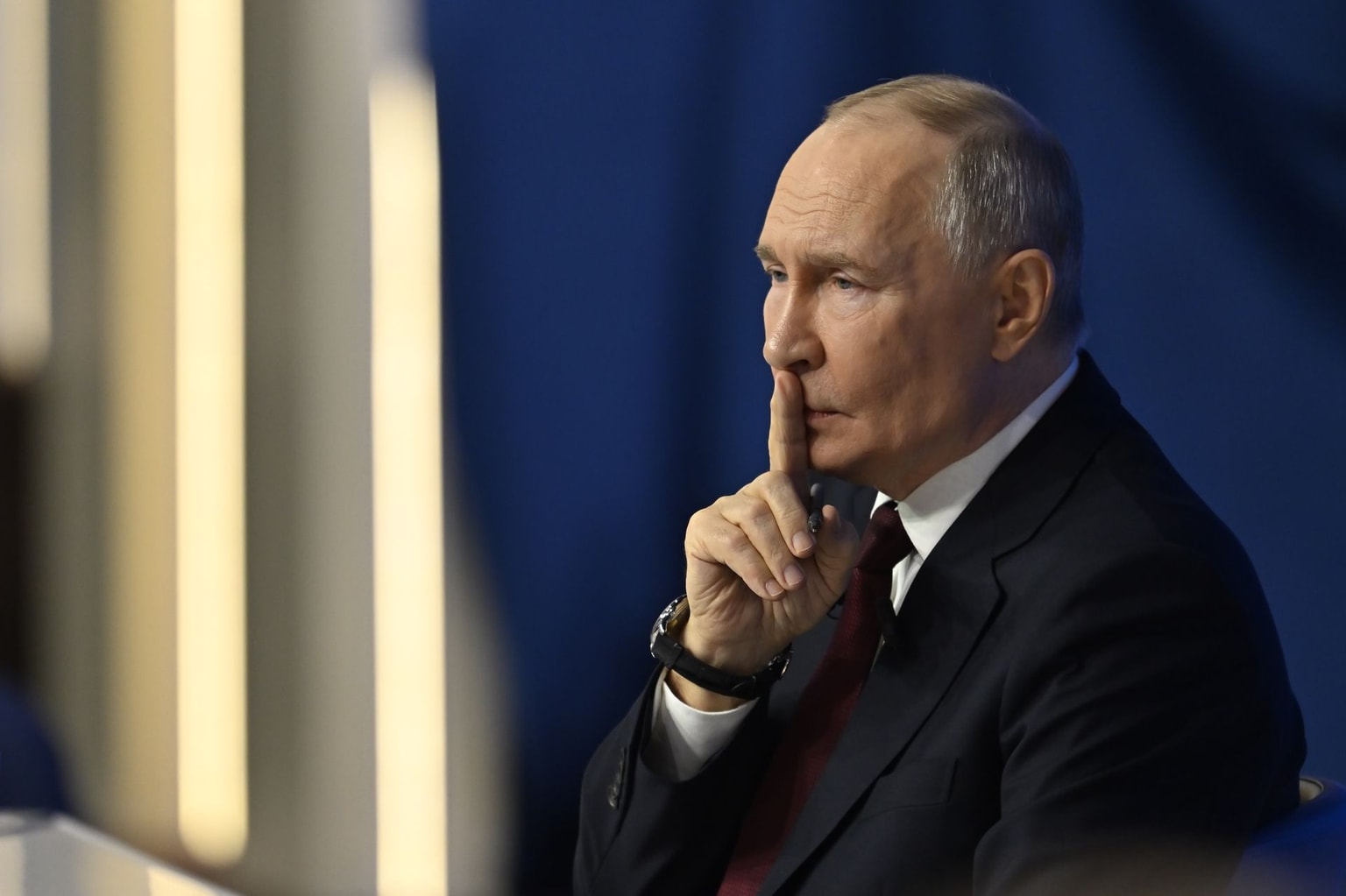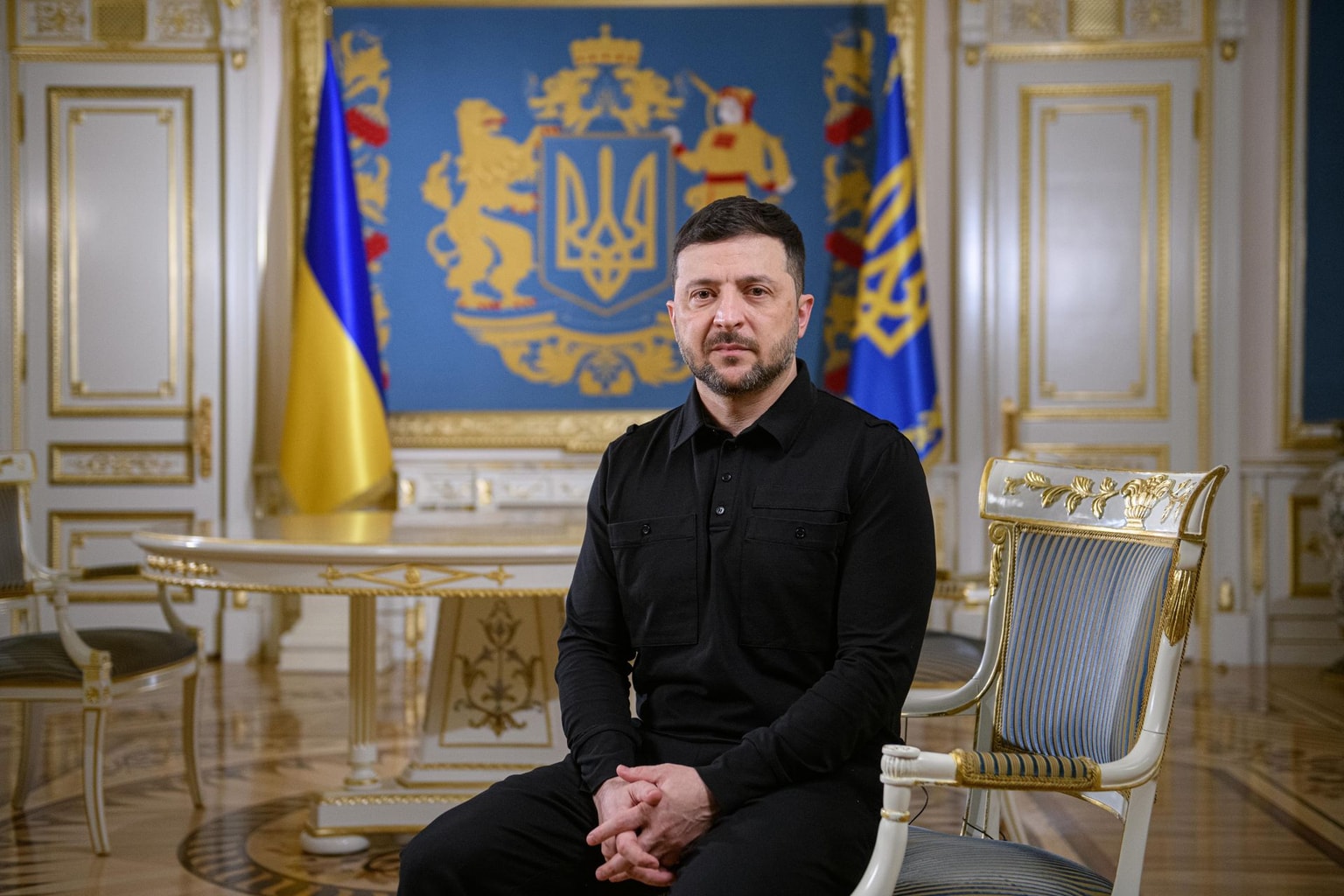Navalny's death preceded by long list of Putin critics' murders

Russian opposition leader Alexei Navalny's death in jail on Feb. 16 follows a long list of murders and suspicious deaths of opponents of Russian dictator Vladimir Putin.
Since he came to power in 1999, more than 20 Putin critics have been killed or died mysteriously.
Many other enemies of the Kremlin have survived assassination attempts.

Some of the critics investigated alleged crimes of Russian intelligence services, while others criticized Putin's wars in Chechnya, Georgia and Ukraine.
The methods employed ranged from poisoning and shooting to plane crashes.
Another long litany is that of killed enemies of Chechen strongman Ramzan Kadyrov, a major Putin ally.
Putin and Kadyrov have denied the accusations of wrongdoing.
First murders
One of the first to die was Sergei Yushenkov, a liberal politician and ally of exiled tycoon Boris Berezovsky. He was shot dead in 2003.
Yushenkov, a critic of the Kremlin, investigated the Federal Security Service's (FSB) alleged involvement in staging the 2002 Moscow theater hostage crisis. During the crisis, Islamist terrorists seized 850 hostages, and Russian security services killed 172 people during the rescue operation.
Alexander Litvinenko, a former FSB officer critical of Putin, claimed that Yushenkov had been killed because Litvinenko had given him evidence of the FSB's involvement in the hostage crisis.
Yushenkov was also a member of an independent commission that investigated allegations of the FSB's involvement in the 1999 Moscow apartment bombings, which killed 307 people.
Another member of the commission, Novaya Gazeta journalist Yury Shchekochikhin, died after being poisoned in 2003. According to an analysis by London specialists, Shchekochikhin was poisoned with thallium.
Investigative journalist Anna Politkovskaya was also a vehement critic of the FSB, Putin's regime and his war in Chechnya. She survived a poisoning attempt in 2004.
In 2006, Politkovskaya was shot dead in her building's elevator on Putin's birthday.

Meanwhile, former Russian intelligence officer Litvinenko, who accused Putin of orchestrating the 1999 Moscow apartment bombings, was poisoned in the U.K. in 2006 with polonium-210, a radioactive element.
The British police charged Andrei Lugovoi, a former KGB officer and current pro-Kremlin lawmaker, and businessman Dmitry Kovtun with murdering Litvinenko. In 2016, a British court concluded that Putin and Nikolai Patrushev, the former head of the FSB, “probably” ordered Litvinenko’s assassination.
Another opponent of the Kremlin, Sergei Magnitsky, was arrested on trumped-up charges in 2008 after exposing corruption by Russian government officials. He died in prison in 2009 after being beaten up and developing multiple diseases.
Magnitsky's death was not investigated, and Russian authorities convicted him in a posthumous trial on tax evasion charges.
A similar fate befell Boris Berezovsky, a Russian oligarch who had helped Putin to come to power but had later fallen out with him. He was found hanged in his bathroom in the U.K. in 2013.
More murders in Russia, Ukraine and the West
One of the most prominent enemies of Putin was Boris Nemtsov. He co-led the opposition to Russia's aggression against Ukraine, which began in 2014.
Nemtsov was shot dead in front of the Kremlin in 2015.

Yet another critic of the Russian dictator, Denis Voronenkov, was shot dead in Kyiv in 2017.
Voronenkov had been a Russian pro-Putin lawmaker who had switched sides and fled to Ukraine.
Those fleeing to the U.K. were not safe either.
In 2018, former Russian intelligence officer Sergei Skripal and his daughter Yulia survived after being poisoned in the U.K. with Novichok, a nerve agent produced by the Russian government. Dawn Sturgess, a British citizen, accidentally came into contact with the poison and died as a result.
The British authorities identified Russian military intelligence agents using the passports of Alexander Petrov and Ruslan Bashirov as suspects in the murder case. Bellingcat, an open-source intelligence outfit, later identified Petrov and Bashirov to be FSB agents Alexander Mishkin and Anatoliy Chepiga.

Another murder is reportedly linked to the Wagner mercenary group, which was at the time acting as Putin's private army.
In 2018 journalist Orkhan Dzhemal, film director Alexander Rastorguyev and cameraman Kirill Radchenko were killed in the Central African Republic while investigating Wagner mercenaries there.
Two other critics of Putin – columnist Yulia Latynina and activist Pyotr Verzilov – survived poisoning attempts in 2017-2018.
Recent murders and poisonings
Several critics of Putin living abroad also exhibited signs of poisoning in 2021-2023, according to independent Russian publications Agentsvto and Meduza. These include Natalia Arno, head of the Free Russia Foundation, journalist Yelena Kostyuchenko, and John Herbst, a former U.S. ambassador to Ukraine.
During Russia's full-scale invasion in 2022-2023, more than a dozen Russian officials, executives, and businessmen died in mysterious circumstances, with some falling out of a window, off a staircase, or from a boat, according to CNN.
Some of them were critical of Russia's invasion of Ukraine.
One of the latest deaths was that of Yevgeny Prigozhin, a Kremlin ally who became an opponent of Putin's regime in 2023.
In June 2023 Prigozhin's Wagner mercenary group launched a rebellion and marched on Moscow. Short of reaching the capital, Prigozhin concluded a deal with Putin and halted the mutiny.
However, in August 2023 a private jet with Prigozhin and six Wagner employees on board crashed not far from Moscow.
According to unnamed U.S. officials cited by the Wall Street Journal, the likely cause was a bomb onboard or "some other form of sabotage." But the Conflict Intelligence Team, an open-source intelligence outfit, believes the plane was most likely shot down by a surface-to-air missile, based on the contrail and sounds of explosions recorded by eyewitnesses.
Human rights lawyers and opposition politicians say that now the lives of many political prisoners are also at risk.
One of them is Vladimir Kara-Murza, who survived two poisoning attempts in 2015 and 2017. An FSB poisoning team followed him during the assassination attempts, according to an investigation by Bellingcat, the Insider and Der Spiegel.
In April 2023, Kara-Murza was sentenced to 25 years in jail on charges of high treason and libel against the Russian army.
Kara-Murza's health is deteriorating as a result of harsh prison conditions and inadequate medical treatment, according to his lawyers. They say he is suffering from polyneuropathy, which developed as a result of the poisoning attempts.
Another political prisoner at risk is liberal politician Ilya Yashin. In 2022 he was sentenced to 8.5 years in jail on charges of "spreading fake information about the Russian army" – a popular accusation used in Russia to prosecute those opposing Russia's war against Ukraine.
Kadyrov's enemies
It is not only Putin's critics who are being killed en masse.
Many opponents of Chechen strongman Kadyrov, a major Putin ally, have also been killed.
Politkovskaya investigated the violations of both Putin and Kadyrov, and several Chechens have been convicted for her 2006 murder. Politkovskaya said in 2005 that Kadyrov had threatened to kill her.
In 2006 Chechen police also killed intelligence officer Movladi Baisarov, an opponent of Kadyrov wanted in Chechnya on charges of kidnapping and murder. The police claimed he had threatened to throw a hand grenade at them.
Another opponent of Kadyrov, lawmaker Ruslan Yamadayev, was killed in 2008. Three Chechens have been convicted by a Russian court for the murder.
Yamadayev’s brother Sulim, a Russian officer whose unit clashed with Kadyrov’s forces, was assassinated in the United Arab Emirates in 2009. A local court has convicted two Chechens for the murder, and the United Arab Emirates police believe lawmaker Adam Delimkhanov, Kadyrov’s closest associate, to be the organizer of the crime.
Yet another assassination of a Kadyrov critic, Chechen militant Umar Israilov, took place in Austria in 2009. Several Chechens have been found guilty by an Austrian court for the murder, and Austrian police believe it was ordered by Kadyrov.
Natalia Estemirova, a human rights activist who investigated Kadyrov’s violations, was murdered in 2009. Oleg Orlov, head of human rights group Memorial, has accused Kadyrov of ordering the assassination.
Nemtsov's 2015 murder could also be linked to Kadyrov. Nemtsov was a critic of both Putin and the Chechen strongman.
A Russian court has convicted Zaur Dadayev, an ex-top commander of Kadyrov’s Sever (North) police battalion, and several other Chechens for Nemstov’s murder.
Russian investigators have tried to question Ruslan Geremeyev, another top commander at the Sever battalion, in the Nemtsov case. However, these efforts were blocked by the Chechen authorities.

Kadyrov’s regime has also cracked down on Chechnya’s LGBTQ community. In 2017 dozens of men were arrested and tortured in Chechnya on suspicion of being gay, and at least three were killed, according to the independent Russian publication Novaya Gazeta and Human Rights Watch. Kadyrov’s press secretary Alvi Karimov stated that gay men’s relatives would be expected to kill them.
In 2020 three Chechen opposition bloggers were also targeted.
Mamikhan Umarov, an anti-Kadyrov blogger, was killed in Austria, and two Chechens were arrested in the murder case.
Another blogger critical of Kadyrov, Imran Aliev, was murdered in France in the same year. The French authorities have identified an associate of Kadyrov as the suspected hitman.
A third anti-Kadyrov blogger, Tumso Abdurakhmanov, survived an assassination attempt in Sweden in 2020. Sweden’s Foreign Ministry summoned Russia’s ambassador for an explanation of the attack due to alleged links between the assailant and the Chechen government.





















